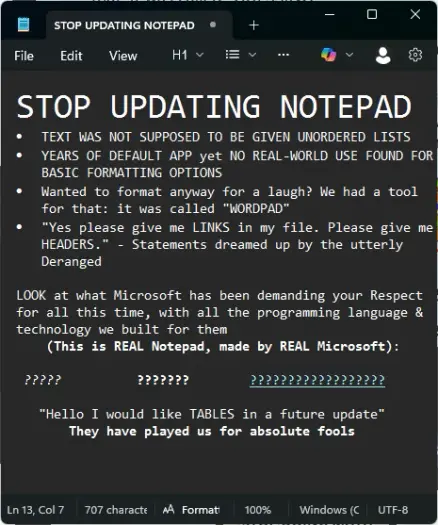I became a software engineer because writing code is fun. Thinking through hard problems, designing elegant solutions, seeing the things you’ve built working for the first time… these moments are all deeply satisfying, so why in the world would I ever surrender them to AI?
Software Automation 🤖
Cats 🐈⬛
Linux 🐧
I break shit for a living.
Certified Pissed and ready to throw hands with this goddamn regime.
You'll get mostly pictures of my lovely Bean (cat), occasional politics posting, and some general yapping about tech.
"I'm glad to know that the Software Engineering department isn't the only team that expects Daniel to break everything"
Trans Rights are Human Rights 🏳️⚧️
(Please have some posts or an introductory post on your account before following)
| Pronouns | They/Them, He/Him, A/Problem |
| Cat’s Name | Bean |







